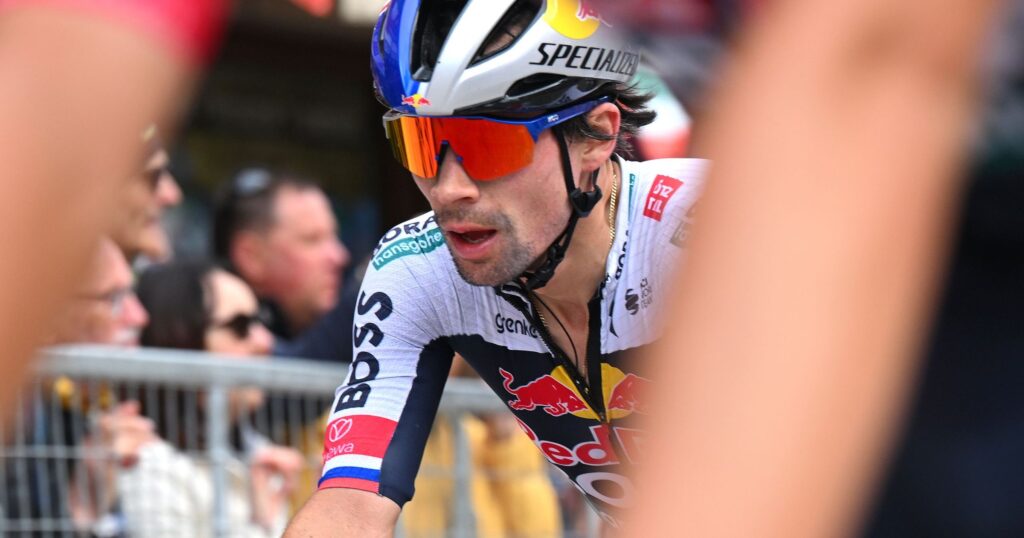Primoz Roglic, a significant contender in the Giro d’Italia, faced another setback during Stage 15 of the race. His aspirations for a podium finish dimmed considerably when Jonathan Vaughters, the director of the EF Education-EasyPost team, commented that Roglic would now “struggle to make the podium.” This indicative assessment came after a day filled with challenges on the mountainous terrain, marked by Roglic’s inability to keep pace with his rivals during crucial moments of the race.
The poignant moment of Roglic’s struggle occurred during the final climb of the stage when he was unable to maintain his momentum, losing a crucial 90 seconds to leading competitors. This performance resulted in a significant drop in his standings, pushing him down to 10th place in the general classification. Currently, he finds himself nearly four minutes behind the race leader, Isaac del Toro from UAE Team Emirates-XRG, a situation that raises questions about his resilience and strategy going forward.
After crossing the finish line, Roglic expressed relief simply at having finished the grueling stage, as he made his way toward the team bus. The cyclist’s composure in light of adversity indicates both humility and determination. His emotions were shaped not only by the physical demands of the race but also by the psychological toll such difficulties can take on an athlete.
Disconcertingly, the first signals of distress for Roglic became apparent on Monte Grappa, where he momentarily lost contact with the leading pack. This situation was somewhat alleviated by UAE’s controversial decision to chase down an initiative that involved their own rider, del Toro, who was in the coveted pink jersey. This decision inadvertently allowed Roglic to regain his position; however, it was merely a temporary reprieve. During the critical moments on the second ascent, as the general classification (GC) contenders began to attack in earnest, Roglic found himself seated and unable to respond effectively to the rapid pace.
Vaughters, acknowledging the competitive landscape of the race, stated openly that it would be extraordinarily challenging for Roglic to reclaim his competitive edge, let alone secure a place on the podium. His prediction underscored the hardships that lie ahead for the 35-year-old cyclist, as each day poses a fresh threat and potentially compounds his struggles further.
Adding a layer of intrigue, Roglic was involved in a crash that took place on Saturday, an event that may have had lingering effects on his performance, although no formal confirmation of any injuries or illnesses has emerged. The mystery surrounding his ailment, if any, generates a discussion among cycling analysts and fans alike, regarding whether some underlying factor is hindering his customary prowess in the race.
Commentator Adam Blythe offered a word of caution to those who might be quick to dismiss Roglic’s chances, invoking the memory of Chris Froome’s remarkable comeback during the 2018 Giro. Blythe proposed that the specifics of Roglic’s condition remain unclear, implying that an injury or illness might be clouding his performance. He urged not to count Roglic out of the running, arguing that if the Slovenian can channel even a fraction of the resurgence Froome achieved, he might still have the ability to turn the tide.
As the Giro d’Italia approaches its next stage on Tuesday, with a particularly arduous five-star segment through the Apennines, the question on everyone’s mind remains: Can Primoz Roglic recover from these setbacks and reclaim his title contender status, or will the challenges he faces prove insurmountable? The cycling community awaits an answer with bated breath as the competition unfolds, generating significant intrigue as the race progresses.



